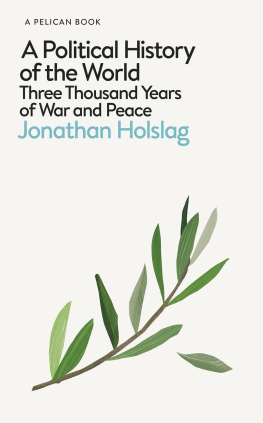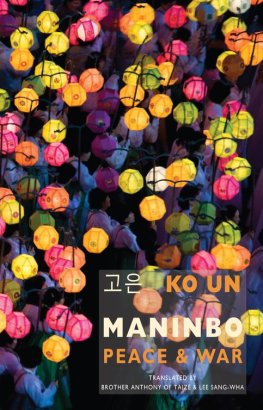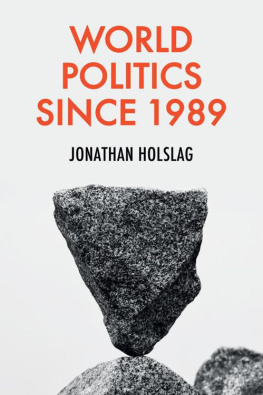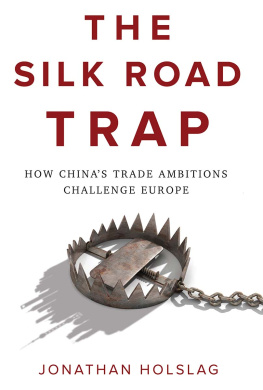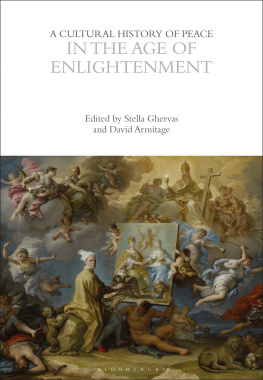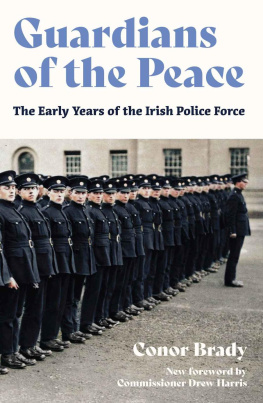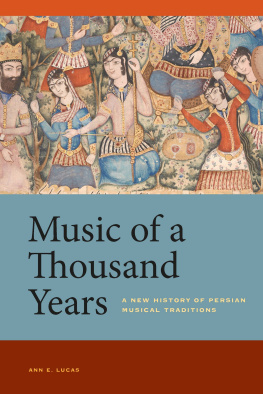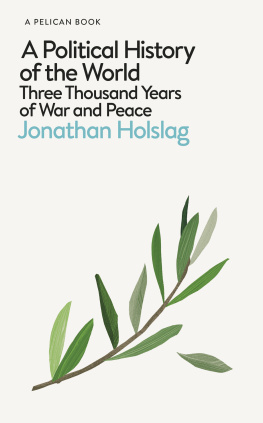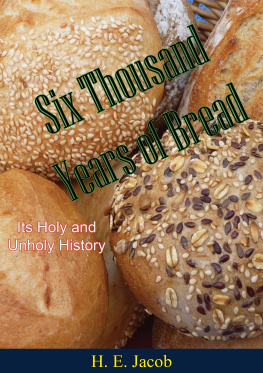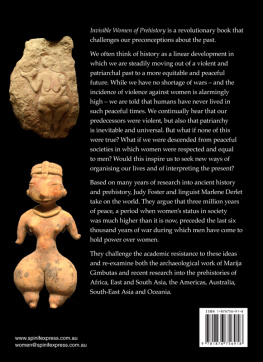Holslag - A political history of the world: three thousand years of war and peace
Here you can read online Holslag - A political history of the world: three thousand years of war and peace full text of the book (entire story) in english for free. Download pdf and epub, get meaning, cover and reviews about this ebook. City: London, year: 2018, publisher: Penguin Books Ltd; Pelican, genre: Politics. Description of the work, (preface) as well as reviews are available. Best literature library LitArk.com created for fans of good reading and offers a wide selection of genres:
Romance novel
Science fiction
Adventure
Detective
Science
History
Home and family
Prose
Art
Politics
Computer
Non-fiction
Religion
Business
Children
Humor
Choose a favorite category and find really read worthwhile books. Enjoy immersion in the world of imagination, feel the emotions of the characters or learn something new for yourself, make an fascinating discovery.
A political history of the world: three thousand years of war and peace: summary, description and annotation
We offer to read an annotation, description, summary or preface (depends on what the author of the book "A political history of the world: three thousand years of war and peace" wrote himself). If you haven't found the necessary information about the book — write in the comments, we will try to find it.
Holslag: author's other books
Who wrote A political history of the world: three thousand years of war and peace? Find out the surname, the name of the author of the book and a list of all author's works by series.
A political history of the world: three thousand years of war and peace — read online for free the complete book (whole text) full work
Below is the text of the book, divided by pages. System saving the place of the last page read, allows you to conveniently read the book "A political history of the world: three thousand years of war and peace" online for free, without having to search again every time where you left off. Put a bookmark, and you can go to the page where you finished reading at any time.
Font size:
Interval:
Bookmark:
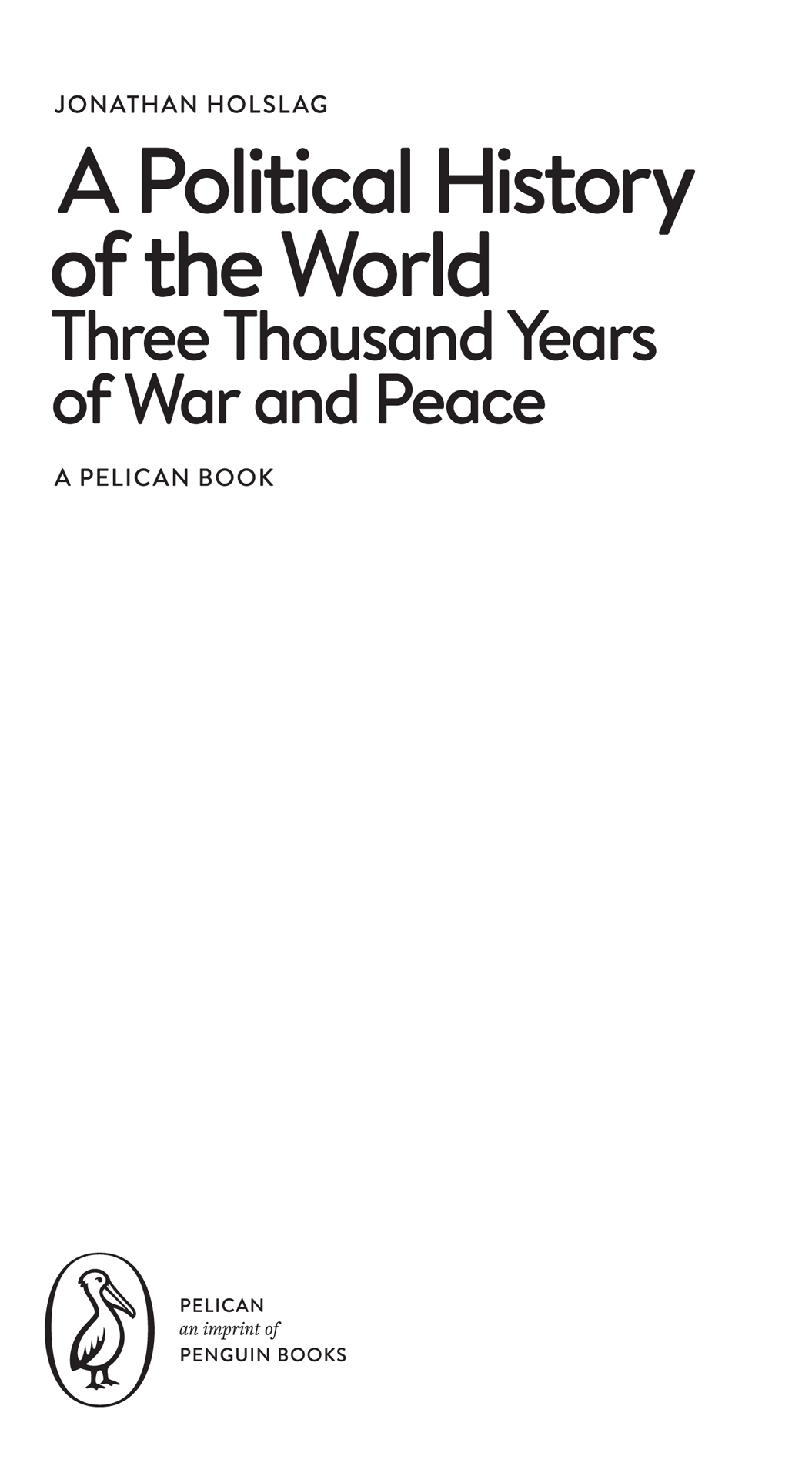
UK | USA | Canada | Ireland | Australia
India | New Zealand | South Africa
Penguin Books is part of the Penguin Random House group of companies whose addresses can be found at global.penguinrandomhouse.com.

First published 2018
Text copyright Jonathan Holslag, 2018
The moral right of the author has been asserted
Cover: Matthew Young
All rights reserved
Book design by Matthew Young
ISBN: 978-0-241-35205-2
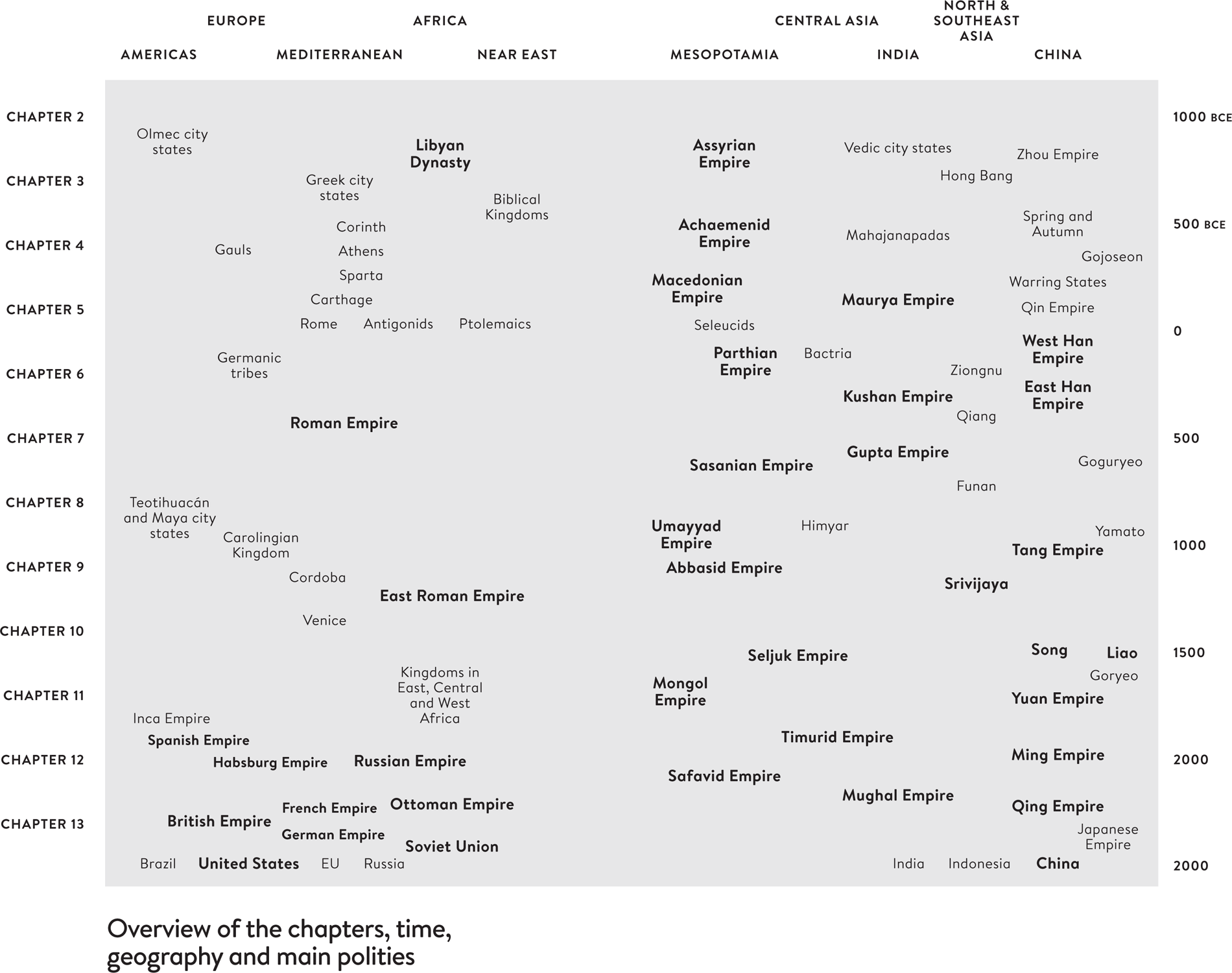
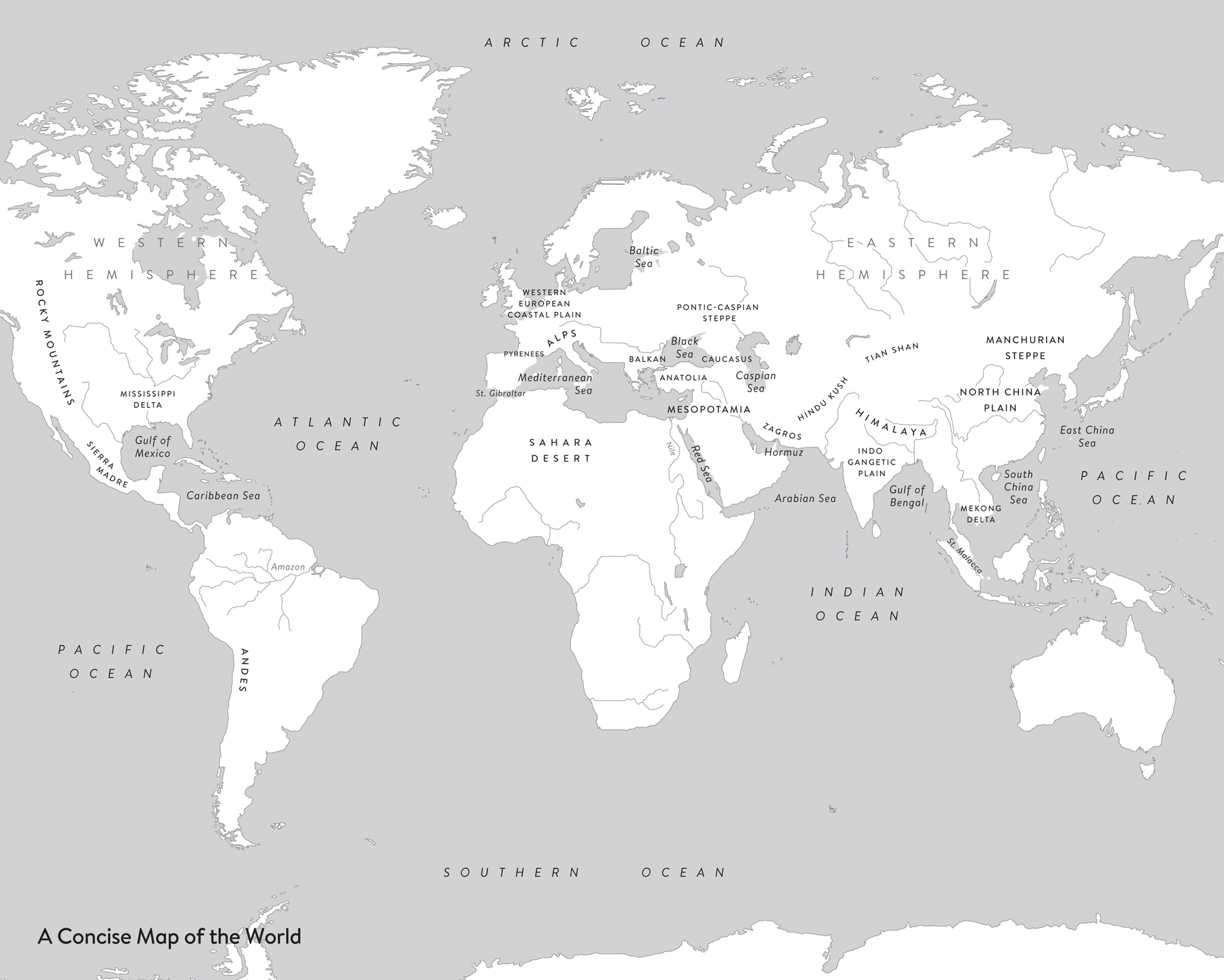
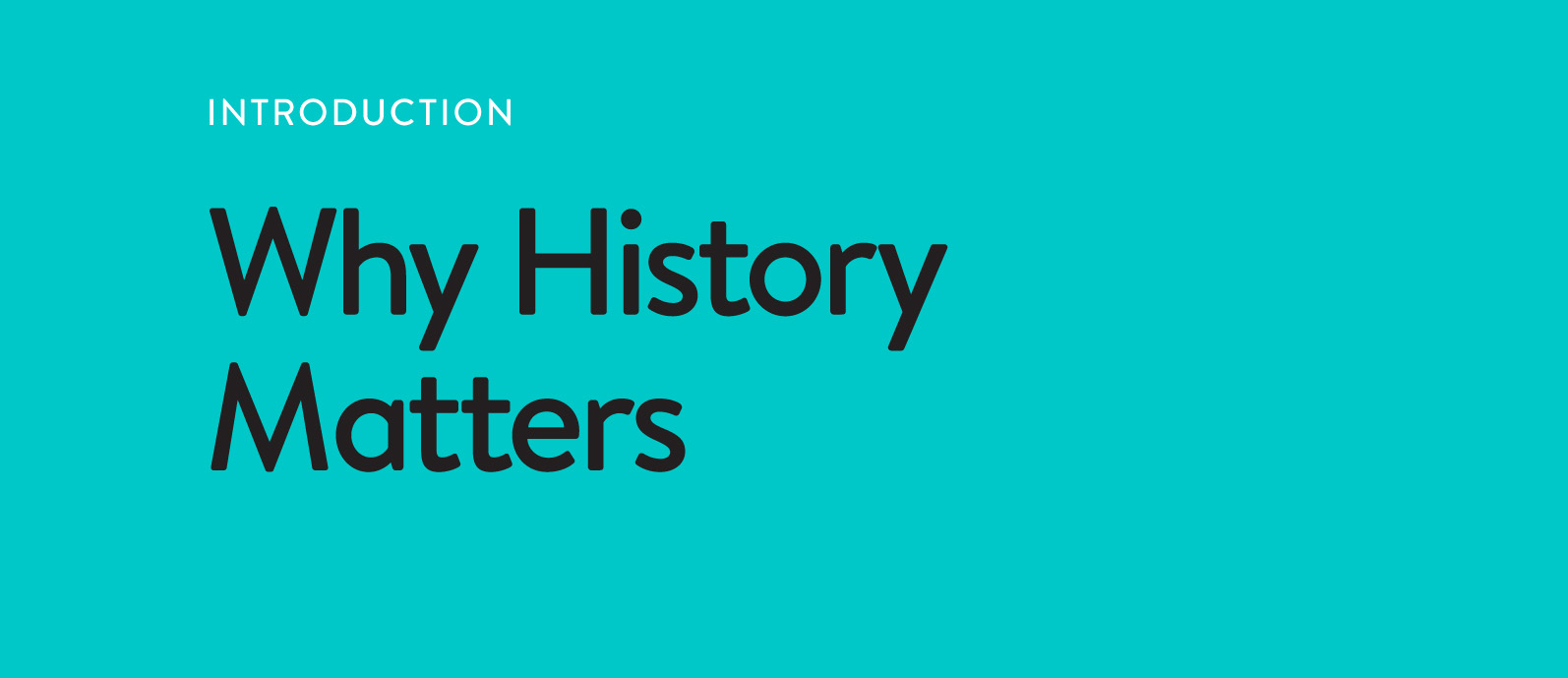
A few kilometres outside the Hungarian capital, Budapest, archaeologists made a remarkable discovery. In a grave from the sixth century BCE they found the remains of a Scythian woman and young boy. They were not rich. Still, their relatives had dressed them in fine clothes and laid them to rest in a tender embrace. Mother and son were victims of war, one of the many conflicts that the Scythian tribes fought with each other. Staring at them, I started wondering. How was it possible that these people could show so much love and care for their kin, yet repeatedly stumble from one bout of carnage to another? How is it possible today for countries to continue to arm themselves to the teeth, for wars still to tear apart so many loving families, and for diplomacy to fail so miserably to prevent military rivalry? Why has a planet that has always yearned for peace never managed to preserve it?
Peace and war, the famous American statesman Henry Kissinger noted, are the core business of world politics. Even if the international agenda has been broadened by environmental issues and matters as trivial as the curve of bananas, it is still diplomacy that bears an enormous responsibility when situations of great peril arise. This explains why diplomacy has remained such a weighty business, mystical almost, dignified by protocol and shrouded in secrecy. It also explains why young people remain attracted to it. Each year, numerous graduates compete in demanding entrance exams all over the world to join the corps diplomatique. Many more seek to be involved in international politics from the sidelines. I have written this book mostly for them, for the men and women that aspire to study, report or shape world politics, whether as politicians, diplomats, military officers, professors, or journalists.
World politics is again poised precariously at a tipping point. At one end of the balance sits a large crowd of cosmopolitans, the airborne elite that hops from one city to another and considers the success of diplomacy to be measured by the number of dialogues established or the flocks of cameramen present at international conferences. It insists that the bloody history of great power politics has ended and that major wars have become much less likely. Competition, such reasoning continues, is much less likely to spark major wars because of economic interdependence. This opinion was particularly dominant in politics after the collapse of the Soviet Union in 1991: in Europe, which has aspired to lead by example rather than by force; in China, which has designed the doctrine of peaceful rise; and in the United States of America, where conservatives and progressives alike have championed a foreign policy premised on liberal values.
At the other end sit the many who believe that the free and open world has not benefited them, that globalization is responsible for economic turbulence, and that both migrants and multinationals are a threat. They are angry and rally around strong nationalistic leaders. They want to be protected against a world of injustice and insecurity. As the cosmopolitans went on to revel in their flat, borderless world, this group has grown bigger and now severely limits the scope for international compromise and moderation.
This shift comes at a moment when the global levels of military spending are once again higher than during the darkest hours of the Cold War.
If theory and ideology give you a vantage point on the world much like that gained from a helicopter ride, history brings you to the same point only after a long and arduous mountain expedition. A journey through history strengthens the mind in the same way that an expedition in nature hardens body and soul. It requires perseverance and concentration to interpret the many events along the way. It develops the perceptiveness and awareness that are needed to detect and overcome hurdles. And it ultimately leads to great heights, from where one can look back, draw conclusions, and search for the best possible route towards the horizon ahead.
There is no shortcut for this voyage. However much we trust in the rigour of theory and the clarity of ideology, if we do not accept the challenge of coming to grips with history, it is like claiming to be religious without having read any sacred texts. Compared to ideology, history can be a moderating force. It reveals not only how much progress the world has made in improving living conditions, but also how hard-fought such progress and its preservation has been. From this perspective, world history can be viewed as an upward curve; but it has experienced dramatic setbacks along the way, which need to be understood in order to help prevent or at least ameliorate new crises in the future.
However, the study of history has increasingly become marginalized in the programmes of schools and universities. What remains often summarizes history in support of theories or preconceived ideas. In courses of international politics, for example, history is at best limited to the same handful of case studies, like the Peloponnesian War, the rise of ancient Rome, or the workings of the nineteenth-century Congress System. It instantly becomes clear that the subjects that are always focused on relate to only a small area of the globe: Europe. This has led scholars outside Europe to claim that the strategic culture of their own countries is fundamentally different and stands apart from vicious European power politics. I have heard this argument many times: from Chinese colleagues and diplomats who refer to an alleged tradition of harmoniousness innate to the Middle Kingdom; or from Indian officials who consider their nation to have been founded on Gandhis principles of peace. Such geographical limitations in the study of history inevitably cause misunderstanding and disagreement.
So, what should readers expect from this book? In order to answer that question, I should first explain what this book is not. It is not a specialized work that reveals new discoveries from archaeological sites or archives. It does sometimes draw upon primary sources, but it also gratefully relies on numerous excellent secondary sources. Nor is this book another history promoting a single great idea: that there is a clash of civilizations brewing, for instance; or that we are nearing the end of history; or that humans have always been rational optimists who advanced their prosperity through trade. Neither is this a work of historical revisionism that tries to provoke controversy by attacking earlier studies. To be sure, like any other student of international affairs I do have predispositions, but I have not set out merely to confirm them. In fact, I did not know what to expect when I embarked on the research for this book, as much of what I had to explore was new to me.
Font size:
Interval:
Bookmark:
Similar books «A political history of the world: three thousand years of war and peace»
Look at similar books to A political history of the world: three thousand years of war and peace. We have selected literature similar in name and meaning in the hope of providing readers with more options to find new, interesting, not yet read works.
Discussion, reviews of the book A political history of the world: three thousand years of war and peace and just readers' own opinions. Leave your comments, write what you think about the work, its meaning or the main characters. Specify what exactly you liked and what you didn't like, and why you think so.

